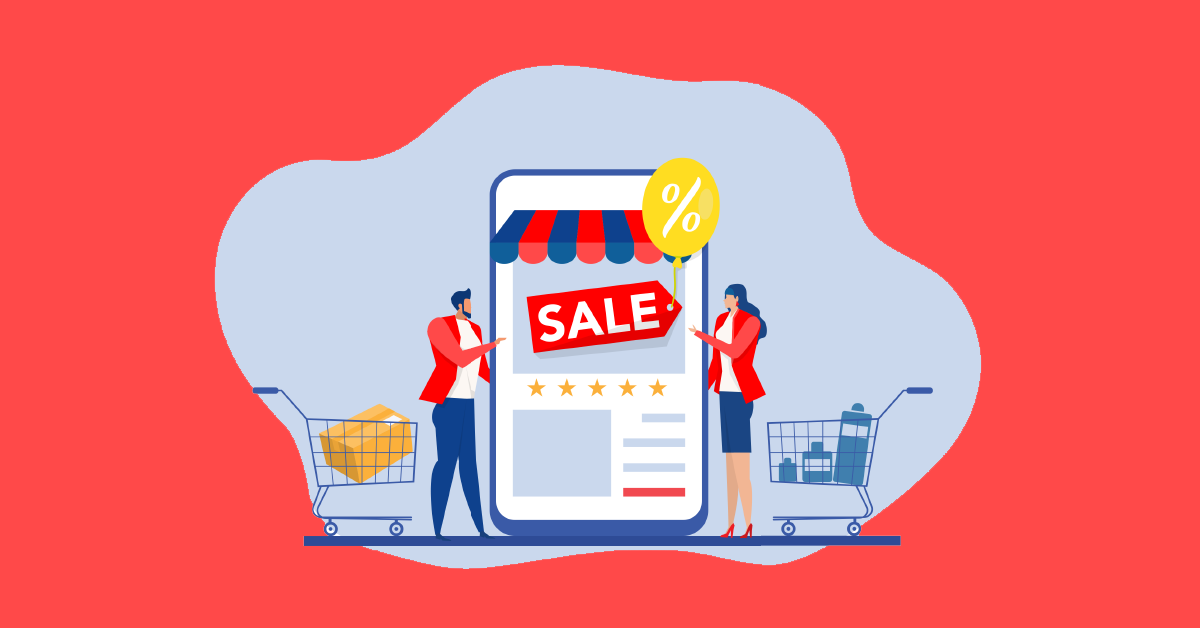10 Social Media Platforms that Drive E-Commerce Success
In the dynamic world of e-commerce, CEOs and marketing experts have pinpointed the social media platforms that excel in driving sales. From leveraging Instagram’s power of user-generated content to YouTube’s compelling visual demonstrations, we’ve compiled the top ten strategies used to engage and convert audiences. Discover which platforms might give your business the competitive edge in the digital marketplace.

Tip 1
Instagram: User-Generated Content Boosts Sales

Wyatt Underwood, Chief Executive Officer, Playground Expedition
Instagram has proven to be the most effective platform for driving e-commerce sales for our business, which specializes in commercial-grade school playground equipment. Our strategy focused on visually engaging content, showcasing the joy and excitement children experience with our products.
A memorable campaign involved a user-generated content contest, where customers shared photos of their playground installations. This increased our engagement and significantly boosted our sales, as it provided authentic, relatable content that resonated with our audience. It was a genuine reflection of the impact our products have on communities, making it a powerful tool for conversion.
Tip 2
Pinterest: Engaging Pins And Aspirational Boards

Faizan Khan, Public Relation and Content Marketing Specialist, Ubuy Australia
Pinterest has been super effective in driving e-commerce traffic for our business. The process is simple: click on pretty pictures, get sales! Creating catchy pins is the key here. Adding a story and background to your pins helps you better connect with your target audience. People who relate to your pitch and products are more likely to engage and buy. Add discounts and exclusive offers, and you’ve created an effective strategy!
We also used boards to create scrapbooks of our product images. Each board showed an aspect of our larger brand story through behind-the-scenes (BTS) pics and customers’ favorite collections. Tapping into people’s aspirations is easier on Pinterest, in my experience, and we used this factor fully! Our products presented a better and more convenient lifestyle, translating into great sales!
Quora has actually been an unexpectedly effective platform for us in driving e-commerce sales. I think this is largely because Quora is a question-and-answer site, and there is a lot of user engagement on the platform. It is one thing to discover answers to questions on the platform; it is another to discover product recommendations from answers to questions.
Our strategy involved asking questions that helped steer the conversations on Quora toward potential scenarios for which our products or services would be a good fit. We then began answering those questions, posting full, detailed answers that explained the business purpose of our products or services. We were very careful to only slightly mention our business name or product in solving the problem presented in the question, and to keep the tone very conversational and informational. This allowed us early on to find good fits between the “what to ask,” “how to answer,” and “tactic to mention our product” strategies for driving referral traffic.
To amplify reach, we used Quora’s ads to promote answers. This not only increases the visibility of the content but also ensures that it reaches a highly targeted audience—those already looking for answers or solutions to questions in your niche. This strategic use of Quora ads has increased our website’s referral traffic significantly.
TikTok has been the most effective for our e-commerce marketing. And if you want to convert on this platform, ride the trend. Viral marketing is one of the most effective ways to get attention on TikTok. It worked for us, so it should work when you do it right.
By the way, you can live-stream, too! It’s one of the biggest social platforms and keeps growing. A lot of its users are young people between 18 and 34, who mostly shop online. That makes TikTok perfect for e-commerce marketing. Plus, it gets more engagement than other big social media platforms like Twitter and Instagram. TikTok is used in many languages and places, and it has all kinds of content, like DIY, educational, and fitness videos. This variety gives marketers more chances to reach potential buyers.
The TikTok app has features that are great for e-commerce. For instance, in China, online stores can add a “Shop Now” button to their videos, which is really popular. Sellers can also put links in their bios to go straight to their websites. Shopify, a platform for building e-commerce sites, has partnered with TikTok. This lets sellers integrate their websites or social media pages with Shopify.
Our e-commerce sales have soared thanks to Discord. Our unique strategy involves creating a dedicated server for our brand, offering a community space for customers to engage. We host exclusive events, giveaways, and provide early access to products for server members. This sense of belonging and special treatment has led to a loyal customer base, driving consistent sales.
Tip 6
WhatsApp: Personalized Shopping Enhances Conversions

Adam Seguin, Owner, Myrtle Beach Home Buyers
WhatsApp has proven to be our e-commerce sales ace. Our unique approach is to create private, personalized shopping experiences for customers through one-on-one chats. We offer exclusive deals and recommendations based on their preferences. By providing a convenient and intimate shopping atmosphere, we’ve seen a significant increase in conversions.
The unexpected star in driving e-commerce sales for my business has been Twitter. While not traditionally associated with SaaS sales, I found that the platform’s dynamic and real-time nature aligns well with the fast-paced tech industry.
An offbeat yet successful strategy involved initiating tech trivia threads. By posing thought-provoking questions related to SaaS and engaging in discussions, we created a tech-savvy community. This unconventional approach not only strengthened our Twitter presence but also subtly showcased our SaaS expertise.
As discussions naturally gravitated towards the efficiency of our solutions, it translated into increased engagement, conversions, and a Twitter community invested in exploring our SaaS offerings.
Facebook has been a key driver in our e-commerce sales growth. Our strategy on this platform focused on leveraging Facebook’s comprehensive advertising tools. We created targeted ad campaigns based on user demographics, interests, and online behaviors.
Additionally, we engaged with our audience through regular, interactive posts and timely customer service via Messenger. This blend of targeted advertising and active engagement helped convert our audience into loyal customers.
LinkedIn has surprisingly been our secret weapon for e-commerce sales. Our unique approach involves sharing insightful industry articles and forming connections with B2B professionals. By nurturing relationships through personalized messages and showcasing our products’ relevance in the professional world, we’ve seen a steady increase in conversions.
Tip 10
YouTube: Visual Demonstrations Attract Customers

Amy Tribe, Director, OGLF (Our Good Living Formula)
YouTube has been the most effective social media platform for driving e-commerce sales in my experience.
On YouTube, demonstrating your brand and products visually is more impactful than just describing them. It’s a great place to use content marketing to showcase what you offer to your target audience. For instance, if you have an online clothing store, instead of just displaying photos and descriptions, you can create videos. These videos can provide outfit ideas, tips on color matching, and accessory choices, all while highlighting items for sale.
The ultimate objective is to persuade potential customers that your product stands out from the competition. To amplify your reach, consider collaborating with influencers and YouTube creators. These partnerships can significantly expand your audience and drive engagement and conversions more swiftly.
Best Social Media Platforms that Drive E-Commerce Success
You’ve heard what the experts had to say, now it is your turn. Leave a comment below and let us know what you think.






